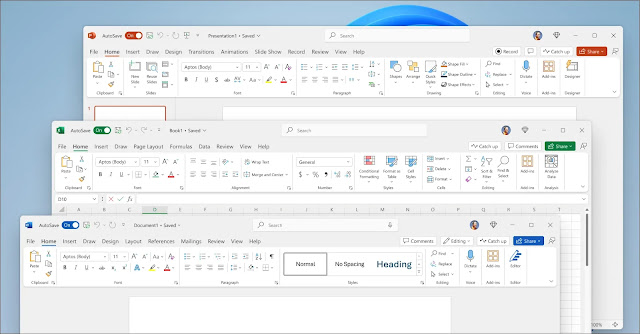Tech Roundup: Google Gmail Q&A, Meta Movie Gen & More
[A recurring feature on the latest in Science & Technology.]
- Meta releases Movie Gen, its new generative AI model for media that uses "simple text inputs to produce custom videos and sounds, edit existing videos, and transform your personal image into a unique video"; to be added to its apps in 2025.
- Google begins widely rolling out support for Gmail Q&A feature across Android, iOS and web to let users "ask Gemini questions about your inbox" and "answer specific questions about your emails, show you unread messages or messages from a specific sender, summarise emails about a topic in your inbox, and even answer general questions from search"; adds more search filters within Google Drive search bar and debuts summary cards for purchase information within Gmail to "provide helpful information about orders and deliveries."
- Web browser Arc becomes available for Android as an open beta after launching for iOS in January and Windows in April 2024.
- Apple releases a new AI model called Depth Pro that can generate a 2.25-megapixel depth map in 0.3 seconds on a standard GPU, using a single image.
- Google confirms it is "running a small experiment" showing blue verified checkmarks beside official site links for companies like Microsoft, Meta and Apple in search results and begins rolling out ads in AI overviews for queries that have a "commercial angle"; updates Lens search feature with multi-modal abilities to understand video and voice inputs, alongside using visual and audio inputs to shop for items and identify songs, and starts labelling AI-generated content in search.
- Meta unveils new AI features for Ray-Ban smart glasses, including real-time AI video processing, live translation, QR code scanning and Audible integration, to "help you remember things like where you parked, translate speech in real time, answer questions about things you're seeing," as it unveils capabilities to talk to and share photos with Meta AI; also showcases its US$ 300 Quest 3S headset for mixed reality and immersive experiences, but discontinues the Quest 2 and Quest Pro.
- The company has since confirmed that the images submitted to the Ray-Ban Meta AI smart glasses for analysis could be used for training its AI models.
- In the meanwhile, a project undertaken by a pair of Harvard University students has put a demo that marries Ray-Ban Meta Smart Glasses, PimEyes, and other tools to instantly identify strangers' faces, names, phone numbers, addresses and other personal information from the web.)
- Apple releases iOS 18.0.1, iPadOS 18.0.1, macOS Sequoia 15.0.1, watchOS 11.0.1 and visionOS 2.0.1 with bug fixes.
- Samsung says it intends to expand One UI software to all of its major product lines as it attempts to unify software experience across smartphones, TVs and home appliances.
- Meta begins testing new Local and Explore tabs in Facebook that "pull together content from across Reels, Marketplace, Groups and Events on Facebook to help you find what you're interested in" and introduces an updated, full-screen Video tab for Reels; launches a new Facebook Content Monetisation program for content creators to earn from in-stream ads, ads on Reels and the Performance bonus.
- Vivaldi, Waterfox, Wavebox and the Open Web Advocacy accuse Microsoft of giving its Chromium-based Edge browser an unfair advantage in a new antitrust complaint filed with E.U. regulators; say "no platform independent browser can aspire to match Edge's unparalleled distribution advantage on Windows"; comes as Google files an E.U. antitrust complaint alleging Microsoft engages in unfair cloud practices and is "exploiting" its customers' reliance on products like Windows.
- Meta adds a new option in WhatsApp that allows users to tag up to five other people in their Status updates and the ability to tag locations on Threads posts.
- Music streamer Spotify announces Offline Backup, a feature designed to give Premium subscribers an additional way to listen to music offline without manually downloading playlists.
- Microsoft releases a US$ 150 standalone version of Office 2024 for consumers and SMBs for Windows and Apple macOS, exactly three years after it released Office 2021 in October 2021; scraps plans to overhaul its Edge browser UI.
- LG rolls out full-screen screensaver ads from LG and its partners to its smart TVs, including its expensive OLED models. (The ads, on by default, can be turned off.)
- Snap debuts its next-generation Spectacles AR glasses powered by Snap OS; releases AI tools that let creators generate videos from text prompts and image prompts, coinciding with a redesign of the Snapchat user experience;
- Discord opens Activities, its ecosystem of apps and games, to all developers, letting them distribute and monetise apps on Discord via its Embedded Apps SDK.
- Reddit rolls out its machine learning-powered translations in Brazil, Spain, Germany, Italy, the Philippines, and more than 30 other countries on the mobile web, its apps and desktop.
- Delivery, logistics and transportation platform Uber says the company is "building three" super apps: Uber, Uber Eats and Uber Driver, an app for couriers and drivers, as Uber One hits 19 million members.
- PayPal says it is enabling U.S. merchants to buy, hold and sell cryptocurrency directly from their PayPal business accounts, except in New York state at launch.
- Mozilla announces plans to shut down its Mastodon server, Mozilla.social, giving users until December 17, 2024, to export their data and migrate to another instance.
- Slack unveils Agents for the communications platform, letting paid users access Salesforce AI agents (Agentforce), third-party agents from Asana, Cohere, Adobe, and others, and users' own agents.


Comments
Post a Comment